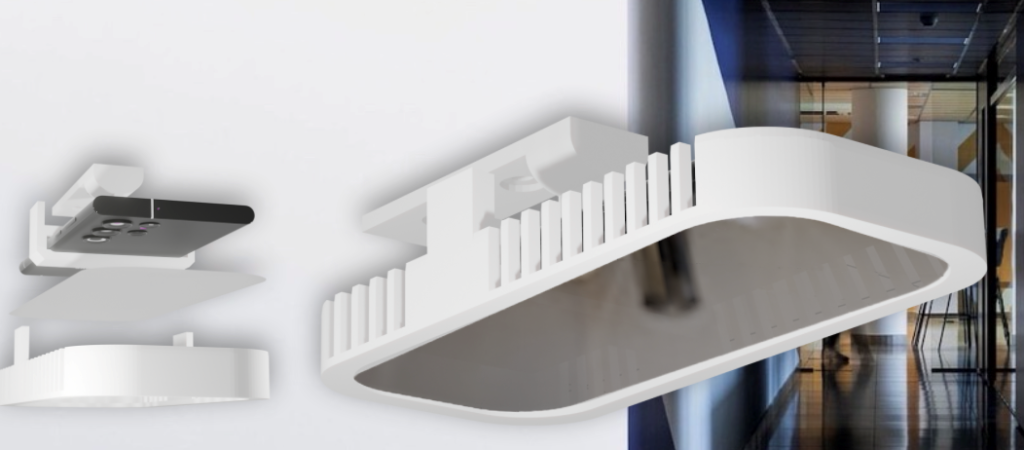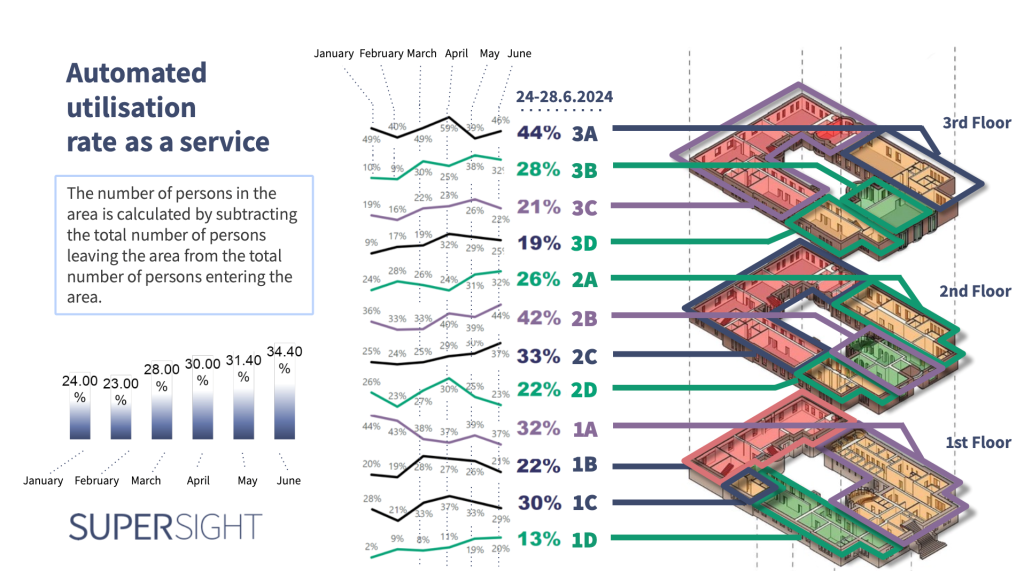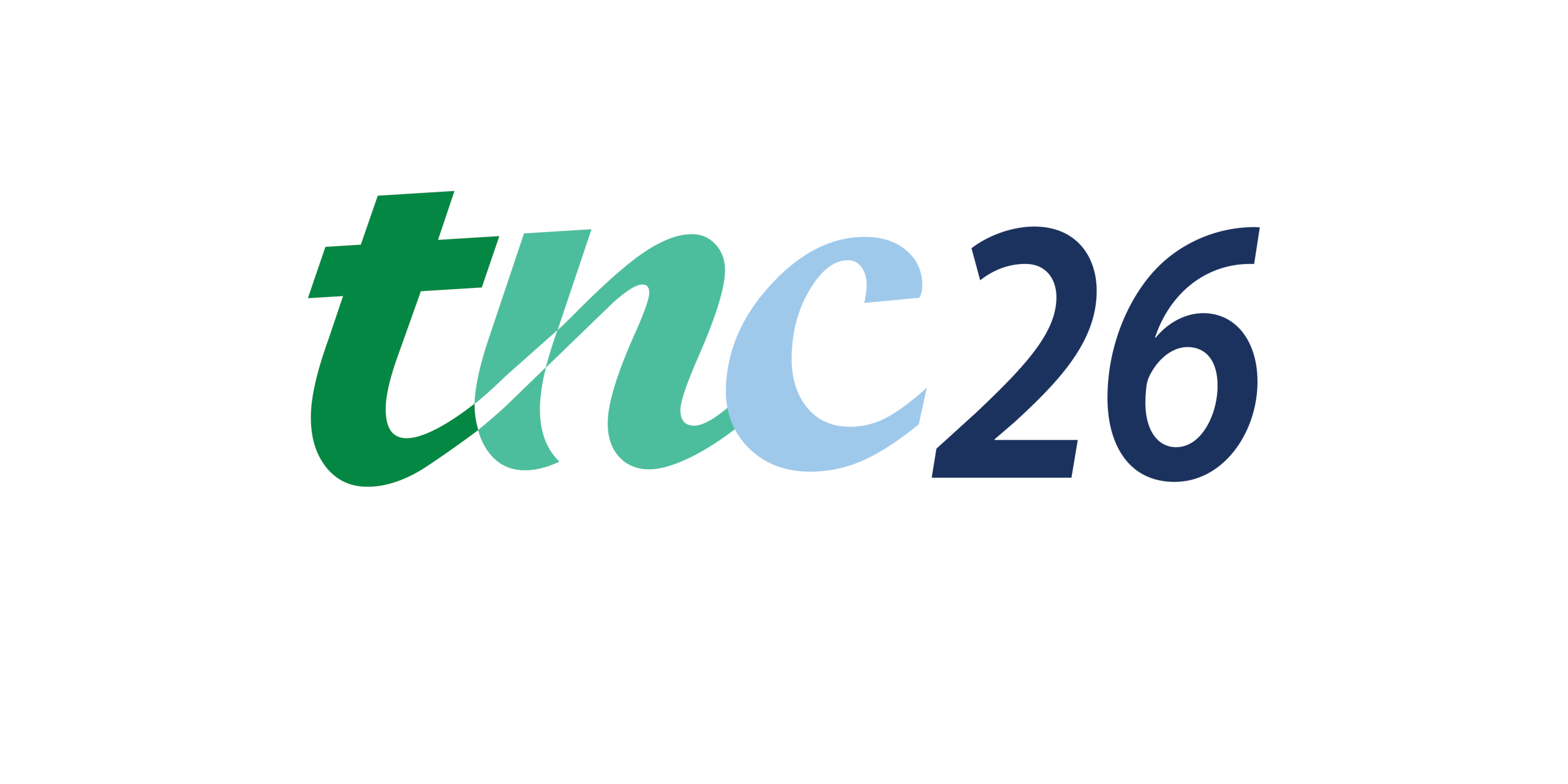Harnessing AI to reduce emissions: Supersight’s vision for the future of real estate
Supersight Oy is a leading developer of privacy-preserving computer vision technology. The Finland-based company is committed to developing cutting-edge technology that ensures 100% privacy, makes everyday life easier, brings efficiency to real estate management, and provides for a more sustainable future. Supersight’s AI model is developed on Europe’s fastest supercomputer, LUMI. The AI model has achieved over 99 percent accuracy in reporting property occupancy rates, making it the most accurate AI model in the world in its field.
About forty percent of our energy-related GHG emissions come from the built environment. Currently, in Finland and Europe, many office buildings are vacant or underused in the post-pandemic transition.
“Companies are wasting hundreds of billions on empty office space. If the use of office buildings could be better optimised, numerous client companies could save millions and reduce energy related emissions by eliminating unnecessary space,” says Kimmo Pentikäinen, CEO of Supersight, describing the correlation between real estate business, energy and emissions.
To solve this problem of unused office space, Supersight set out to develop its machine vision model in its product development process. The solution was perhaps not so unsurprising – a mobile phone, a supercomputer, and a working AI model.
Smartphones as computing sensors
“When testing different solutions, we found that using Android mobile phones as computing sensors was by far the most cost-effective and cyber-safe solution for measuring the use of the built environment,” says Kimmo Pentikäinen.

“Processing large-scale visual datasets – in our case combined with the development of a sophisticated AI model – requires the simultaneous processing of massive amounts of data, i.e., we needed parallel computing to accelerate the training of the necessary neural networks for the development of our own AI model,” explains Pentikäinen.
“We didn’t have that kind of computing capacity ourselves, but we got access to the LUMI supercomputer from CSC and expert support in using the software from a CSC specialist,” he added.
In its product development, Supersight also took advantage of the computing support funding provided by Business Finland, which the company used for the LUMI capacity. With the support of CSC’s AI expert, the machine vision application was further improved.
“With the LUMI supercomputer, we significantly accelerated the testing and modification of our model. This was absolutely crucial in our quest for 99% accuracy in modelling real space usage. With LUMI, we were able to run multiple training processes simultaneously, which ensured that our final model was optimised for performance and scaled well to a variety of environments.”

“Although this AI model of ours is now complete, it goes without saying that everyone working in this field needs to look ahead to the next steps to maintain and further develop competitiveness, so do we by utilising LUMI supercomputer,” concludes Pentikäinen.
“For CSC, the Supersight account has provided valuable experience in the specific needs of corporate research projects, and we want to continue to be actively involved in supporting and enhancing corporate product development,” says Dan Still, Partnership Manager at CSC. He points out that 20% of the Finnish capacity of the LUMI supercomputer is reserved for business use.
Kimmo Pentikäinen spoke at the Nordic Industry days in Copenhagen in September 2024. Watch Kimmo Pentikäinen’s presentation on Youtube.

Dan Still
Dan Still works with building industrial partnerships and networks to boost industrial HPC use.





